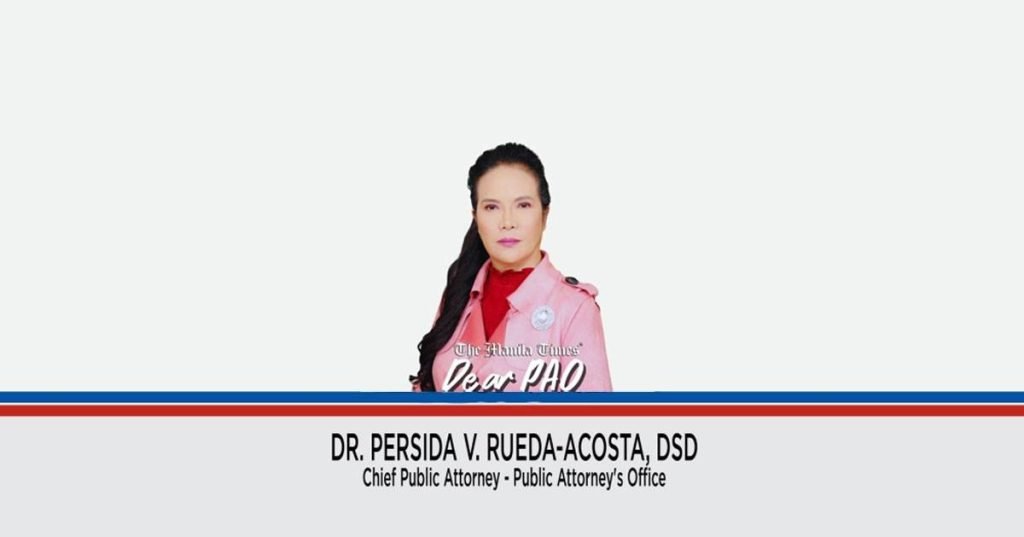
Dear PAO,
We have a long-standing dispute at the restaurant where I am currently employed regarding the distribution of service charges among employees. Is there any rule on the proper distribution of the collected service charges in an establishment? Can the management legally claim a share of the service charges collected from the customers?
Royale
Dear Royale,
The Labor Code of the Philippines has a specific provision pertaining to the distribution of the service charges. Previously, the provision allowed the distribution of service charges between the employees and the management of an establishment. To wit:
“Art. 96. Service Charges. – All service charges collected by hotels, restaurants and similar establishments shall be distributed at the rate of eighty five percent (85%) for all covered employees and fifteen percent (15%) for management. The share of the employees shall be equally distributed among them. In case the service charge is abolished, the share of the covered employees shall be considered integrated in their wage.”
However, the passage of Republic Act (RA) 11360, which amended Article 96 of the Labor Code of the Philippines, changed this rule. The said law provides for the full distribution and division of service charges among covered employees, viz.:
“Art. 96. Service Charges. – All service charges collected by hotels, restaurants and similar establishments shall be distributed completely and equally among the covered workers except managerial employees.
“In the event that the minimum wage is increased by law of wage order, service charges paid to the covered employees shall not be considered in determining the employer’s compliance with the increased minimum age.
“To facilitate resolution of any dispute between the management and the employees on the distribution of service charges, a grievance mechanism shall be established. If no grievance mechanism is established or if inadequate, the grievance shall be referred to the regional office of the Department of Labor and Employment which has jurisdiction over the workplace for conciliation.
“For purposes of this Article, managerial employees refer to any person vested with powers or prerogatives to lay down and execute management policies or hire, transfer, suspend, pay-off, recall, discharge, assign or discipline employees or to effectively recommend such managerial actions.”
Thus, the current rule mandates that all collected service charges be distributed completely and equally among the covered workers, excluding managerial employees. The management no longer has any right to take a portion of the collected service charges.
As to the manner of distribution of the collected service charges among the employees, the Implementing Rules and Regulations (IRR) of Republic Act 11360, provides that:
“SEC.2. Employees covered – This rule shall apply to all employees of covered employers, regardless of their position, designation or employment status, and irrespective of the method by which their wages are paid, except to managerial employees.”
Therefore, the equal distribution among employees of the collected service charges should be implemented regardless of their position, designation or employment status, and irrespective of the method by which they are paid.
Also note that the implementing rules provide for the schedule of distribution of the service charges, which is to be distributed and paid to the employees not less than once every two weeks or twice a month of intervals not exceeding sixteen days (Section 4 of the Implementing Rules of and Regulations of Republic Act 11360, Department Order 206).
Lastly, any dispute arising from the distribution of service charges shall be settled through the grievance machinery as provided in the Collective Bargaining Agreement (CBA), if any, or should be referred to the DoLE regional office which has jurisdiction over the workplace (Section 6 of the Implementing Rules and Regulations of Republic Act 11360, Department Order 206).
We hope that we were able to answer your queries. This advice is based solely on the facts you have narrated and our appreciation of the same. Our opinion may vary when other facts are changed or elaborated.
Editor’s note: Dear PAO is a daily column of the Public Attorney’s Office. Questions for chief Acosta may be sent to [email protected]







